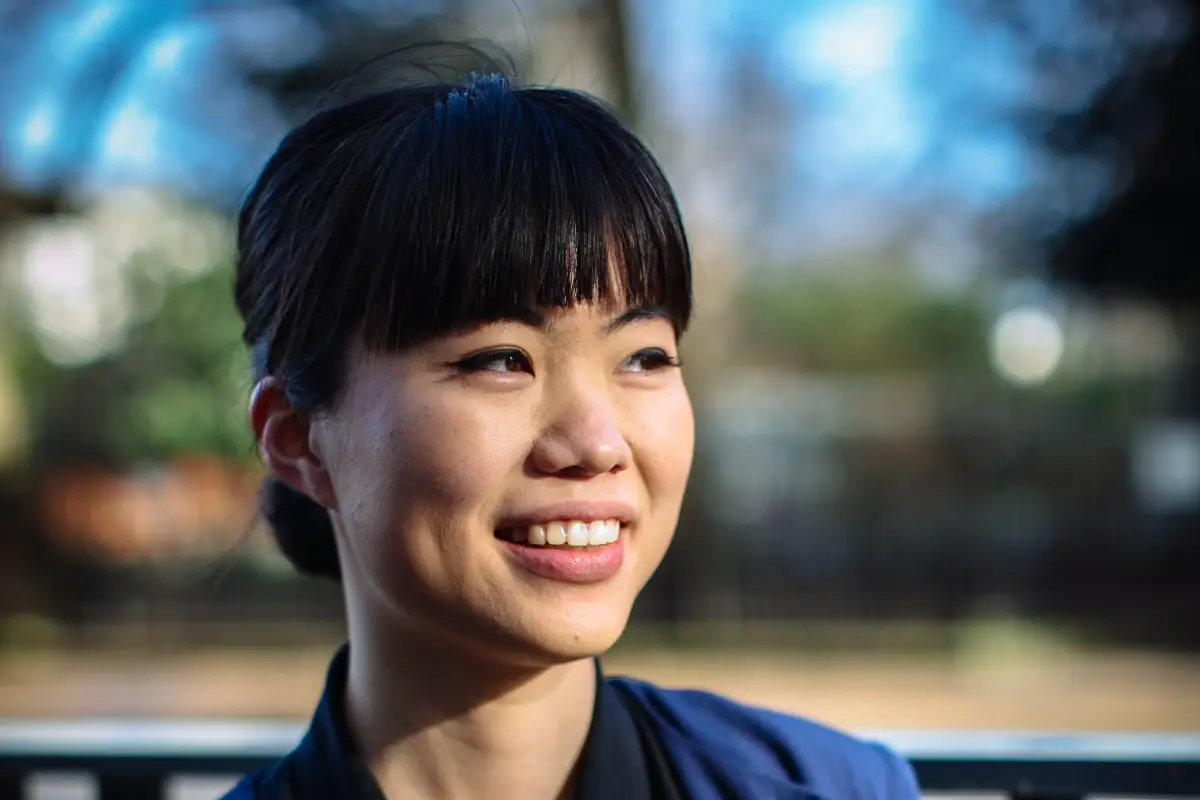Laurin Liu was elected at 20 years old to Parliament in 2011, the youngest member at the time. In her four-year term, she proposed and advocated for bills that affected up to 435,000 individuals in Canada, including low-income seniors, interns in federally regulated industries, and patients with eating disorders. She continues to create positive change as an activist, advocate, and communications specialist.
In Canada’s history, you were the youngest woman elected to the House of Commons. Did you have to struggle to get yourself heard?
Lots of organizational researchers emphasize that leadership is a role we play in the service of others. That means anyone can be a leader. Seeing leadership this way invites diversity — not only when it comes to characteristics like race, gender, and background, but also in personality, approach, and philosophy. It also doesn’t leave a lot of room for ego.
One of my first involvements with the NDP came when I attended a meeting of the Québec youth wing. There was an election for co-presidents, and I sat next to an organizer who made me raise my hand to be nominated. I had never held a leadership role like that before. Even though I was a terrible public speaker, over the years, I would continue to stand to be heard over and over again. When you step into a role as a public representative, you rapidly learn to care about the things that matter and forget about the things that don’t.
Recruitment, support, and mentorship for people who don’t typically see themselves in leadership is very important. We need to do more to make sure that it’s not always the loudest people in a room who raise their hands, are given leadership roles, or are listened to in decision-making.
Many women who have spent time on [Parliament Hill] have talked about how toxic and sexist the workplace can be, especially in such a crowded and hypercompetitive environment. Constantly holding space can get exhausting. In part, I owed much of my ability to be successful in the space to work allies, who either experienced sexism themselves or had enough empathy to [understand].
Allyship [from my peers included] simply acknowledging the difficult experiences that people from equity-seeking groups undergo on the Hill, without minimizing or brushing off abuse or harassment that occurs. Advocating for other women, too, was not just a nicety, but a matter of survival in the workplace.
What challenges do you feel young people face, in general, when trying to bring about change in their communities? How can the government help youth equip themselves to lead?
In 2012, tens of thousands of student protestors in Québec took to the streets in what would be known as the Printemps Érable to protest tuition hikes, and — at the same time — challenge the very structural injustices that reproduced social and economic inequality in Québec society. It was a moment that was marked by social solidarity and the sense of collective power and action that shaped the way an entire generation viewed the power of popular protest. The protests eventually led to the election of a new provincial government that halted tuition hikes.
Collective organizing and community mobilization are hard work. It’s important to build relationships at the speed of trust and not come with pre-made solutions. Part of leadership is reminding people
that they’re stronger when they organize together to make themselves heard by governments and decision-makers, and advocate for the collective good, instead of acting in ways that ignore how a society that has more solidarity and less gaps in opportunity benefits us all.
What should those in power or leadership roles focus on, in order to improve government policies?
One tool [from the] NDP [that was used] when developing policy proposals was the inclusion of gender-based analysis in every legislative brief. That meant that a feminist lens came into play when proposing or debating legislation or amendments to it. This was incredibly valuable in ensuring that gender equality was mainstreamed in policy discussions, rather than treated as an afterthought.
What are your future goals and what issues do you wish to address next?
After leaving politics, I obtained a master’s degree in human rights from the London School of Economics, which led me to working in strategic communications for international philanthropies and NGOs. Over the years, I’ve had the good fortune to work on projects supporting activists defending basic rights around the world and campaigns fighting for international justice and accountability. I hope to continue the same and maintain my curiosity around how we can build a more just and equal society.
Stephanie Hawkins | Contributing Writer



















